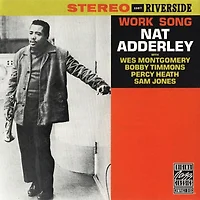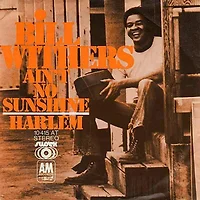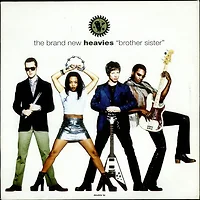Tune for this article is 'Brother Sister' by Sonny Burke & Paul Francis Webster.
<Original Video>
<Music arranger: Sonny Burke>
<Reference Information: Artist Biography>
Joseph Francis "Sonny" Burke was a well respected musician, composer, conductor, songwriter and producer. Born in Scranton, Pennsylvania. Burke studied violin and piano from age five, was an All-State fullback in high school, and went on to study music at Duke University.
"After freelancing as an arranger for the bands of Charles "Buddy" Rogers, Joe Venuti and Xavier Cugat, Burke moved to New York in 1938. During 1939 and 1940 he toured with a big, swinging orchestra of his own. In the 1940s he wrote for Charlie Spivak, Jimmy Dorsey and Gene Krupa and conducted on recordings by Billy Eckstine, Dinah Shore and Mel Tormé.
"Moving to Hollywood, he began to work steadily as a composer, arranger, producer and/or musical director for Warner Bros., Reprise, Decca and MCA Records, and on various motion picture and television assignments. In 1950, he had a hit record of his own, "Mambo Jambo."
As a songwriter, Burke composed two songs that have become standards, "Midnight Sun" with Lionel Hampton, which later got its lyric from Johnny Mercer, and "Black Coffee" with Paul Francis Webster.
In 1980, Burke died of cancer, an illness that befell him while he was enjoying one of the greatest successes of his career — producing the bestselling Frank Sinatra album, Trilogy. Burke conceived the idea for the three-record set and devoted well over a year to supervising its production. Burke had been associated with Sinatra in the creation of more than a dozen albums over 20 years, most notably A Man and His Music, September of My Years and the singer's collaborations with the Duke Ellington and Count Basie orchestras.
(This above material is adapted mostly from the article that appears on the Amazon Sonny Burke Store, which was provided by community contributors.)
As AllMusic.com notes: "Unlike keyboardist Reginald 'Sonny' Burke, who played modern jazz with Stanley Turrentine, Dizzy Gillespie and John Handy, this [Sonny] Burke was an accomplished big band arranger. He studied violin and piano as a child, then played in various bands while studying at Duke in the late '30s. After moving to New York in 1938, Burke assumed leadership of Sam Donahue's band and made several recordings. He wrote arrangements for the bands of Charlie Spivak and Jimmy Dorsey in the '40s, then from the late '40s into the '70s he directed recording sessions for Decca, Reprise, Warner Bros. and his own company, Daybreak. His orchestra accompanied such musicians as Ella Fitzgerald and Louis Armstrong, and he remained active as an arranger."
Ed.'s note: Neither is Sonny Burke to be confused with Joe Burke, although they both have "Joe" as their given names, were born in Pennsylvania and were musicians who composed music for successful popular songs. The songwriter known as Joe Burke was born thirty years before Sonny Burke and wrote the music for "Tip Toe through the Tulips," "Moon over Miami" and many other songs not in any way connected to Sonny Burke who is the subject of this page.
<Lyricist: Paul Francis Webster>
<Reference Information: Artist Biography>
This brilliant and prolific lyricist led an interesting life before becoming a renown writer of song texts for films and recording artists. Educated at N.Y.U. and Cornell before 1935, he made his living as a seaman onboard a freighter trading between the States and China, and at another extreme he was employed as a dance instructor at the Arthur Murray Dance Studios. Moving to Hollywood, he was a frequent collaborator with Sammy Fain.
His career began in 1935 as an uncredited lyricist for Under the Pampas Moon, Dressed to Thrill, and You Only Live Once (1937); he was credited in Our Little Girl (1935), Rainbow on the River (1936), and Public Cowboy No. 1 (1937). During WWII, he authored "Me for You, Forever" for the patriotic We've Never Been Licked (aka Fighting Command and Texas to Tokyo) (1943), as well as the lighthearted Seven Sweethearts (aka Tulip Time) (1942), It Ain't Hay (aka Money for Jam) (1943), Klondike Kate (1943), and Hit the Ice (aka Oh Doctor) (1943).
His many Oscar-nominated songs included "Remember Me to Carolina" (in Minstrel Man, 1944), "Friendly Persuasion (Thee I Love)" (1956), "April Love" (1957), "A Certain Smile" (1958), "A Very Precious Love" (Marjorie Morningstar, 1958), "The Green Leaves of Summer" (The Alamo, 1960), "The Falcon and the Dove (Love Theme From El Cid)" (1961), "Tender Is the Night" (1962), "Follow Me (Love Song From Mutiny on the Bounty)" (1962), "So Little Time" (55 Days at Peking, 1963), "A Time for Love" (An American Dream, 1966), and "A World That Never Was" (Half a House, 1976).
Webster won Oscars for "Secret Love" (from Calamity Jane, 1953), "Love Is a Many-Splendored Thing" (in the movie of the same name, 1955; also used in the film 20 Dates, 1998), and both the Oscar and a Globe award for Original Song for "The Shadow of Your Smile" (in The Sandpiper, 1965).
Webster also made important contributions to such notable films as Presenting Lily Mars and Thousands Cheer (1943); The Stork Club and Johnny Angel (1945); The Great Caruso (incl. "The Loveliest Night of the Year", 1951); The Merry Widow (1952); Timberjack ("He's Dead But He Won't Lie Down") (1955); Giant, Anastasia, and The Revolt of Mamie Stover (1956); A Farewell to Arms (1957); Raintree County (1958); Rio Bravo, The Man Who Understood Women ("A Paris Valentine"), and Imitation of Life (1959); Return to Peyton Place and The Guns of Navarone (1961); Mutiny on the Bounty (1962); Who's Afraid of Virginia Woolf? (1966); Far From the Madding Crowd (1967); The Shoes of the Fisherman (1968); Topaz (1969); Airport (The Winds of Chance, 1970); The Stepmother (1973); The Teacher (1974); and The Specialist and Mr. Sycamore (1975).
His television activity included the words for the Spider-Man series (1967), as well as lyrics for the theme songs of Maverick (1957) and Sugarfoot (aka Tenderfoot) (1957).
Webster also co-wrote the story for Vincent Sherman's film Nora Prentiss (1947).
<Score>
When I went to Cottage Bistro, I took this video for them.
<Performance Video>
Time: 2017.10.09 9:55 PM
Location: 4468 Main St, Vancouver, BC
'Jazz > Funk&Blues' 카테고리의 다른 글
| Super Mario World Athletic Level Remix 2 (1) | 2018.10.26 |
|---|---|
| Work Song (0) | 2017.12.04 |
| Ain't no sunshine (0) | 2017.11.27 |
| Brother Sister (0) | 2017.11.22 |
| Who will comfort me (0) | 2017.11.15 |






